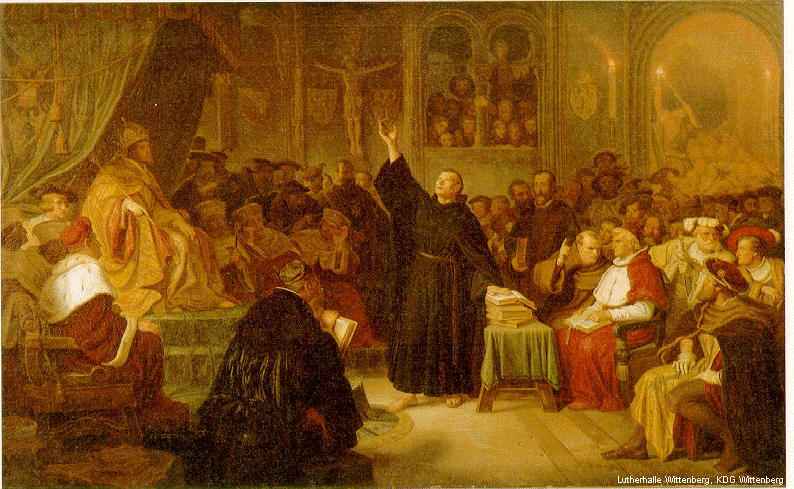
Here I stand, I cannot do otherwise! God help me, Amen!
According to this website (among others), that may not have been actually spoken by Luther. What seems to be without a doubt is that he did say this:
"Unless I am convicted by scripture and plain reason - I do not accept the authority of the popes and councils, for they have contradicted each other - my conscience is captive to the Word of God. I cannot and I will not recant anything for to go against conscience is neither right nor safe. God help me. Amen."
Those are words of courage, and they are quite moving. They form a rallying cry around the idea of Sola Scriptura. Actually, if you think about his reference to plain reason there is quite a lot of wiggle room, but to most people, he's touting the Protestant party line here.
But what do the Scriptures themselves say about themselves?
Yes, His Word is a lamp unto our feet, a light unto our path. And yes, Paul wrote in his second letter to Timothy:
"All Scripture is God-breathed and is useful for teaching, rebuking, correcting and training in righteousness, so that the man of God may be thoroughly equipped for every good work."
When it comes down to whether there might be authority beyond the Scriptures, these and other concepts about the Scriptures are placed before our eyes, by Luther and his successors.
But what do the Scriptures say about the source of truth?
In the first Letter that Paul wrote to Timothy, we hear a description that escaped my eyes (well, my heart at least) that goes against this notion that one can only find truths in the Scriptures.
Paul wrote:
"Although I hope to come to you soon, I am writing you these instructions so that, if I am delayed, you will know how people ought to conduct themselves in God's household, which is the church of the living God, the pillar and foundation of the truth."
Did you catch that? Did you let those words sink in beyond a surface reading?
The Church is the pillar and foundation of the truth.
Again, as I survey those congregations from whence I have come, I don't see a way for this concept to really exist. I looked within the walls and had to conclude again, "But that's not in there!"
Now, there are hundreds of objections and the like that one must make, like where does the Church subsist? Are there degrees of truth? I'm not here to answer such questions today, I'm merely here to point out that there is something woefully lacking, something that comes from an understanding of the Body of Christ as something that is only right when we think it's in line with our understanding of the Scriptures.
If this were the case, the Scriptures would be the pillar and foundation of the truth. But that's not what Paul said, is it? No, somehow, the Church is that pillar.










1 comment:
Hi Jonathan,
I just discovered this blog. I didn't know you and Susan converted to Catholocism. When/how did that happen? I'm curious because I converted to Eastern Orthodoxy about 6 years ago and have noticed many old friends leaning towards liturgical settings if they haven't already converted themselves.
Have you ever read the Touchstone Mag? You might find that interesting.
Kelly (McGirr)
Post a Comment